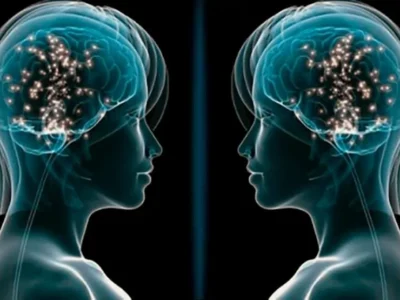The clinical psychologist and professor of Neuropsychology Feliz Inchausti explains in this article the social functioning in schizophrenia and discusses treatment to improve interpersonal functioning in this mental disorder.
Interpersonal difficulties have been widely described in individuals with psychosis spectrum disorders and, specifically, constitute a core feature of schizophrenia. Among the most frequent social deficits are, for example, problems carrying on a conversation with others in a fluid manner, managing conflicts, or acting assertively with family members, friends, or community members. These highly disabling limitations make social skills training (SST) an essential part of treatment for these people and, moreover, SST is recommended in multiple clinical guidelines for schizophrenia.
Treatment to improve interpersonal functioning in schizophrenia
Current treatments to improve interpersonal functioning in schizophrenia can be divided into two large groups: those derived from behaviorism and those based on training social cognition.
Treatments derived from behaviorism
The general goal of the first group of treatments is to improve patients’ social functioning through systematic training of socially effective behaviors, following theories of behavior modification and social learning.
Some studies support the effectiveness of this type of interventions to improve the social functioning of patients with schizophrenia, and even to reduce psychotic symptoms, relapses, and hospitalizations. However, more recent findings have indicated that their effects and generalization capacity are considerably more limited than previously thought.
For example, a meta-analysis by Pilling et al. [1] found no significant benefit in clinical trials that used behavioral SST programs. Similarly, Kurtz and Mueser [2] demonstrated that these treatments only have a moderate effect on psychosocial functioning (d = 0.52) and a small effect on relapse reduction (d = 0.23). In this vein, a recent Cochrane review [3] has concluded that it is still unclear whether current SST programs produce outcomes superior to usual care.
Treatments based on training social cognition
The second group of treatments has focused on training different areas of social cognition with the aim of improving the interpersonal functioning of patients with schizophrenia. The term social cognition refers to various neurocognitive skills that underlie social interactions. The skills that have generated the most interest in the field of schizophrenia are theory of mind (ToM), emotion recognition, and attributional styles.
A well-known treatment of this type is Social Cognition and Interaction Training (SCIT)[4]. There are data showing the effectiveness of SCIT in patients with schizophrenia as well as other similar programs that include specific modules to improve facial emotion recognition, ToM, or attributional style. Nevertheless, Kurtz and Richardson [5] have found that this type of programs have an uneven impact on social cognition. Specifically, their effects on facial emotion recognition have been found to be between moderate and large (identification, d = 0.71 and discrimination, d = 1.01). However, their impact on ToM is lower (d = 0.46) and there is no effect on social perception, attributional style, or the positive and negative symptoms of schizophrenia.
Clinical level
At the clinical level, the use that this type of programs make of computerized tasks for interpersonal training has also been questioned. It seems logical to assume that to effectively improve the mental skills that give meaning to social interactions, it is necessary to practice them in real interpersonal contexts, similar to those patients encounter in everyday life.
Theoretical level
On the other hand, at the theoretical level there is also abundant evidence indicating that the social deficits of schizophrenia are more consistently related to difficulties in understanding and integrating one’s own and others’ mental states in interpersonal situations with high emotional content, rather than to isolated neurocognitive deficits.
Metacognition-oriented SST
In light of these findings, Ottavi et al. [6] have developed a new treatment program that integrates SST and metacognitive training to improve impact on the social functioning of patients with schizophrenia: metacognition-oriented social skills training, or in English, Metacognition-Oriented Social Skills Training (MOSST).
The social skills trained in MOSST are similar to those of other conventional SST programs. However, this treatment specifically focuses on promoting participants’ metacognition, and in particular on helping them correctly understand the dynamics and mental processes that underlie social contexts.
In this sense, MOSST offers a unique approach to develop self-reflective abilities, that is, to form increasingly complex mental representations about oneself as an individual with one’s own thoughts, emotions, and desires that, in turn, motivate one’s own social behavior and that of others.
The aim is for participants to understand that their thoughts, feelings, or desires are subjective experiences different from those of others and that their internal expectations do not necessarily have a direct effect on reality. A more detailed description of MOSST can be found in Inchausti et al [7] or by clicking here.
A recent clinical trial published by our team in Schizophrenia Bulletin, the leading scientific journal on schizophrenia and related disorders[8, 9] (available by clicking here), has demonstrated the superiority of this type of interventions compared to those based solely on the systematic training of desirable social behaviors.
Trial results
The results of this trial suggest that including systematic training in metacognitive skills produces superior and more durable improvements (advances remain significantly at 6 months after the end of treatment) in the number and quality of interpersonal contacts, as well as a significant decrease in the frequency of disruptive and/or aggressive social behaviors in these patients.
Clinical implications
If replicated, these results have important clinical implications. First, because it is a relatively short program (16 weekly 90-minute sessions), delivered in a group context with between 5 and 10 participants per group, which makes it quite cost-effective, manualized, and produces sustained improvements over time in the psychosocial functioning of people with schizophrenia.
However, due to MOSST’s metacognitive emphasis, it is important to emphasize that participants with greater neurocognitive difficulties (e.g., in attention, memory, or processing speed) will require prior neurocognitive rehabilitation, for example with platforms such as NeuronUP, for the treatment to be fully effective. In this regard, the neurocognitive functioning of these patients is a fundamental prerequisite for interventions like MOSST to be truly useful.
References
- Pilling S, Bebbington P, Kuipers E, Garety P, Geddes J, Martindale B, Orbach G, Morgan C: Psychological treatments in schizophrenia: II. Meta-analyses of randomized controlled trials of social skills training and cognitive remediation. Psychol Med 2002, 32(5):783-791.
- Kurtz MM, Mueser KT: A meta-analysis of controlled research on social skills training for schizophrenia. J Consult Clin Psychol 2008, 76(3):491-504.
- Almerie MQ, Okba Al Marhi M, Jawoosh M, Alsabbagh M, Matar HE, Maayan N, Bergman H: Social skills programmes for schizophrenia. Cochrane Database Syst Rev 2015(6):Cd009006.
- Penn DL, Roberts DL, Combs D, Sterne A: Best practices: The development of the Social Cognition and Interaction Training program for schizophrenia spectrum disorders. Psychiatr Serv 2007, 58(4):449-451.
- Kurtz MM, Richardson CL: Social cognitive training for schizophrenia: a meta-analytic investigation of controlled research. Schizophr Bull2012, 38(5):1092-1104.
- Ottavi P, Pasinetti M, Popolo R, Salvatore G, Lysaker PH, Dimaggio G: Metacognition-Oriented Social Skills Training. In: Social Cognition and Metacognition in Schizophrenia. edn. Edited by Lysaker P, Dimaggio G, Brüne M. San Diego: Academic Press; 2014b: 285-300.
- Inchausti F, Garcia-Poveda NV, Prado-Abril J, Ortuño-Sierra J, Gainza-Tejedor I: Metacognition-oriented social skills training (MOSST): Theoretical framework, working methodology and description of the treatment for patients with schizophrenia. Pap Psicol2017, 38(3):204-215.
- Inchausti F, García-Poveda NV, Ballesteros-Prados A, Fonseca-Pedrero E, Ortuño-Sierra J, Sánchez-Reales S, Prado-Abril J, Aldaz-Armendáriz JA, Mole J: A pilot study on feasibility, acceptance and effectiveness of metacognitive-oriented social skills training in schizophrenia. BMC Psychiatry 2017, 17:217.
- Inchausti F, García-Poveda NV, Ballesteros-Prados A, Ortuño-Sierra J, Sánchez-Reales S, Prado-Abril J, Aldaz-Armendáriz JA, Mole J, Dimaggio G, Ottavi P et al: The Effects of Metacognition-Oriented Social Skills Training on Psychosocial Outcome in Schizophrenia-Spectrum Disorders: A Randomized Controlled Trial. Schizophr Bull2017, in press.
If you liked this post about social functioning in schizophrenia, you may also be interested in reading these articles:
“This article has been translated. Link to the original article in Spanish:”
El funcionamiento social en la esquizofrenia







 What is magnetoreception? Humans and magnetoreception
What is magnetoreception? Humans and magnetoreception
Leave a Reply